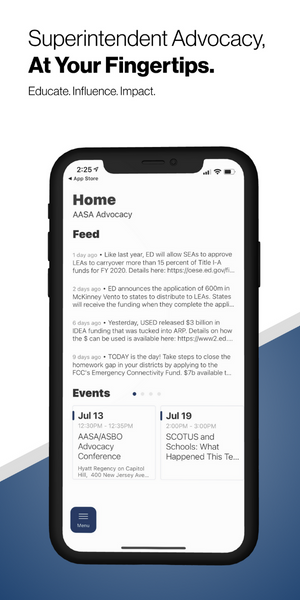The Leading Edge: Policy & Advocacy Blog
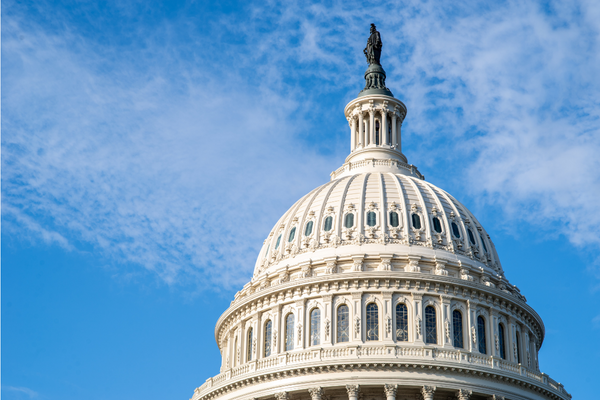 The Leading Edge, AASA's policy & advocacy blog, provides up-to-date information about activities in Washington, D.C. and Capitol Hill that affect you and your school district.
The Leading Edge, AASA's policy & advocacy blog, provides up-to-date information about activities in Washington, D.C. and Capitol Hill that affect you and your school district.
Topics include new or proposed regulations and federal policies, federal funding updates and opportunities, advocacy resources and more.
Latest Posts
-
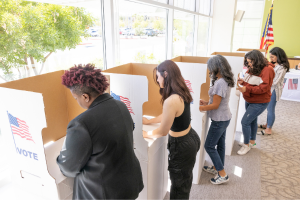
September 17, 2024
Guest Post: 5 Reasons To Pay Attention to Local School Board ElectionsThis blog post contains information shared by the Center for American Progress.
-

September 16, 2024
Apply Now for FCC Cyber Pilot!The FCC announced that the filing window for its cybersecurity pilot program will open September 17.
-

September 10, 2024
The Advocate September 2024: School District Spending of American Rescue Plan Funding Part VReporting how this funding was spent by districts has been an ongoing project for AASA over the past 3 years.
-

September 05, 2024
USED Releases Resources for Key Aspects of ESEA ImplementationUSED has released the three documents for implementing key aspects of the Elementary and Secondary Education Act of 1965 (ESEA).
-

August 28, 2024
Court Grants FCC Request for Stay (for E-Rate and Universal Service Fund)On the heels of last month’s 5th circuit court decision which challenges the constitutionality of the funding mechanism for the universal service fund, the 5th circuit has granted the FCC its requested stay.
-
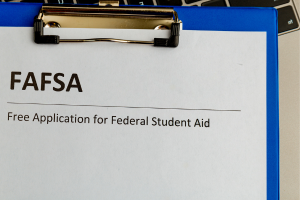
August 23, 2024
Guest Post from NCAN: Class of 2025’s FAFSA Will Open December 1; 2024 FAFSAs Still Down 10%FAFSA completion rates for 2024 are down, and the 2025 application will once again be delayed. Here's what superintendents need know.
-

August 22, 2024
Join AASA, USDA and USED for Back to School Virtual Event Celebrating Healthy School MealsAASA is excited to partner with USDA and USED to celebrate the back to school season and the important role school meals play in providing the fuel kids need to succeed in the classroom.
-

August 22, 2024
ARP Funds for Homeless Students Must Be Obligated—Here’s a Checklist On Good Options for Your LEAAASA’s trusted partner, SchoolHouse Connection, just released a new 2-pager that contains a great checklist of what every LEA who has money left to spend should consider doing with these funds.
-

August 21, 2024
Registration Open for CISA 2024 National Summit on K-12 School Safety and SecurityThe 2024 National Summit on K-12 School Safety and Security will be held on September 25 and 26. Registration is currently open.
-

August 19, 2024
HHS Releases Head Start Final Rule With More Flexibility on Wage RequirementsThis week, the Biden Administration released its long-awaited final rule on Supporting the Head Start Workforce and Consistent Quality Programming. The rule updates various aspects of the Head Start Program Performance Standards, but most notably, significantly increases compensation and benefits for staff in an effort to improve retention and recruitment for the program.
-

August 08, 2024
It’s the Final Spend-down: Five Ideas for Any Remaining ESSER FundsThis blog post provides four questions to ask yourself while deciding how to spend any remaining ESSER funds and also recommends five types of investments to consider.
-

August 08, 2024
FCC Releases State by State Info on How Universal Service Fund Impacts StatesThe FCC has released an overview document and state-specific information detailing how each of the four universal service fund programs (including the schools and libraries program, E-Rate) are impacted in each state.
-

August 02, 2024
FY25 Appropriations UpdateThis summer, both the House and Senate put forward FY25 Labor, Health and Human Services, Education funding proposals. Here's what you need to know.
-

August 01, 2024
Senate Passes Kids Online Safety and Privacy Act (KOSPA)Earlier this week, the Senate passed KOSPA (which incorporates both COPPA 2.0 and KOSA) by a vote of 91-3.
-

July 29, 2024
AASA Joins 10 National Education Groups in Response to Privacy LegislationAASA joined ten other national organizations in a letter to the Senate expressing their support for COPPA 2.0 as included in the bill, and continued deep concern for the Kids Online Safety Act (KOSA) as included in the bill.
Latest Advocacy & Policy Resources
-
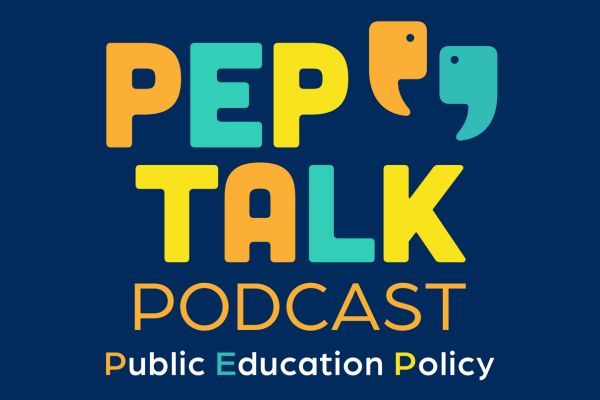
September 19, 2024
PEP Talk Episode 32: School District Spending of American Rescue Plan FundingType:Podcast Topics: Advocacy & Policy, Finance & BudgetsOn this episode of PEP Talk: Kat Sturdevant discusses the newest edition of the American Rescue Plan Report with Sasha Pudelski, Director of Advocacy at AASA, just in time for the ESSER obligation deadline. -

September 17, 2024
Template School Board Resolution to Fund IDEA and Oppose School VouchersType:Sample/Template Topics: Advocacy & PolicyTemplates for resolutions that superintendents can use to advocate for full federal funding of IDEA and to oppose state and federal funding for private school vouchers. -

September 09, 2024
School District Spending of American Rescue Plan FundingType:Report Topics: Advocacy & Policy, Finance & BudgetsAASA surveyed district leaders about how they're using American Rescue Plan (ARP) and other federal COVID-19 relief funding to address pandemic-related student learning recovery.
Receive legislative and regulatory actions direct to your inbox
Stay updated on the issues that matter most to you and understand how they could affect you, your district, your students and your community.

